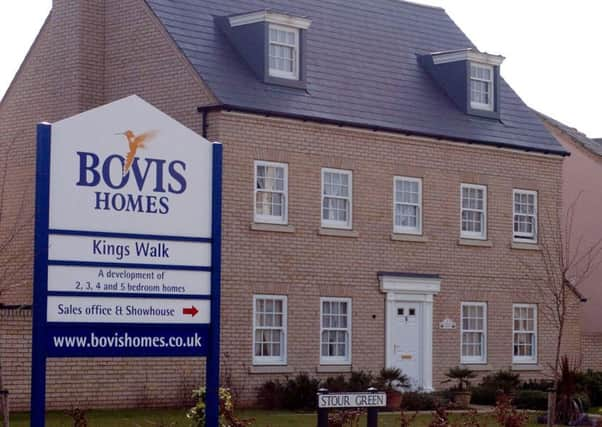Martin Flanagan: All to play for in Bovis Homes battle
This article contains affiliate links. We may earn a small commission on items purchased through this article, but that does not affect our editorial judgement.


Most of the major players have been helped in restoring profit margins in recent years to mid to high double digits by a generally supportive backdrop: there are many people, particularly Generation Millennial, desperately seeking homes.
Despite all the various greenfield and brownfield intiatives, there is still much more demand than supply, which will help sustain those margins in a sellers’ market to beat most sellers’ markets.
Advertisement
Hide AdAdvertisement
Hide Ad• READ MORE: Bovis soars as rival bidders tussle over builder
But the weekend moves on Bovis Homes by both Galliford Try (which owns Morrison Construction in Scotland) and Redrow – even though both have been rejected – indicates that a new positive dynamic could be on the point of entering the sector: the momentum provided by consolidation.
Bovis shares leapt yesterday because even though Redrow has refused to increase the terms of its cash-and-shares offer approach, talks are continuing with Galliford, which offered an all-share merger.
Bovis was particularly vulnerable to suitors sniffing the opportunistic air because it is seen as in something of a crisis following the ousting of its chief executive in January alongside a profit warning.
The company followed that last month by saying somewhat ignominiously that it was setting aside £7 million to compensate homebuyers who were sold houses that were unfinished and had electrical and plumbing faults.
It is not that there is a general desperation to do housebuilding deals. There is plenty of land for future building readily available in the open market.
But takeovers in any sector are a deft way of beefing up profit margins, and it is also a given that investment banks become highly alert and proactive on plausible M&A action in an industry when somebody has shown the way first.
Advertisement
Hide AdAdvertisement
Hide AdIt could make other housebuilders wonder whether their decent organic growth could gain some added thrust from likewise consolidation moves, either as the consolidator or the consolidatee.
There was a fair amount to play for in the sector before. There may be even more as the merchant banks run the synergy numbers.